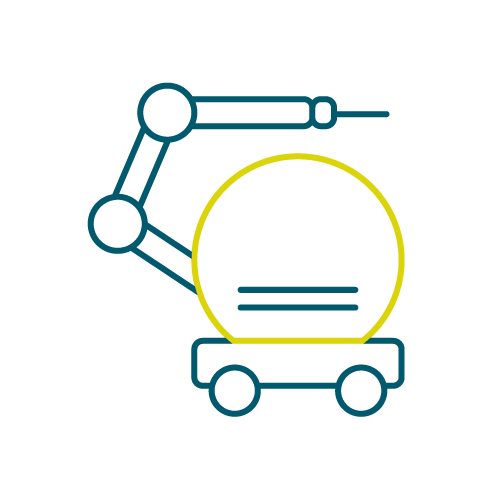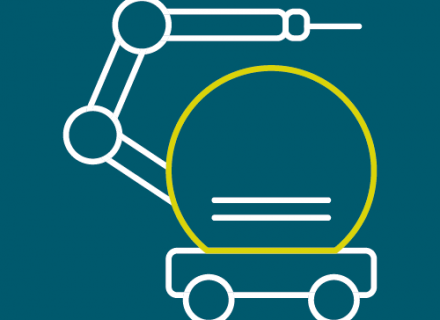Mobility in the industrial environment
Accueil > Research topics > Mobility in the industrial environment
 |
Mobility, in particular the autonomy of equipment, is a key theme for production in the factory of the future. IRT Jules Verne has opted to work on the development of two types of mobility: system mobility and, more locally, end-effector mobility.
|
- System mobility: System mobility, an essential feature of plant flexibility and reconfiguration requirements, forms the design core of new production methods. Coupled with a high level of autonomy, the mobility of systems requires the input and analysis of information about immediate and planned production, but also about displacement within the production space.
- End-effector mobility: Intelligent mobility of end-effectors is directly related to the basic manufacturing operation in question. It is governed both by the constraints of the immediate environment (e.g. presence of people, spatial restrictions, etc.) and by the outcome of the operation itself (via monitoring and control of the process). In order to ensure gains in productivity and quality, mobility may focus on optimising an operation, correcting or preventing the emergence of a defect, or expanding the scope of the end effector.





